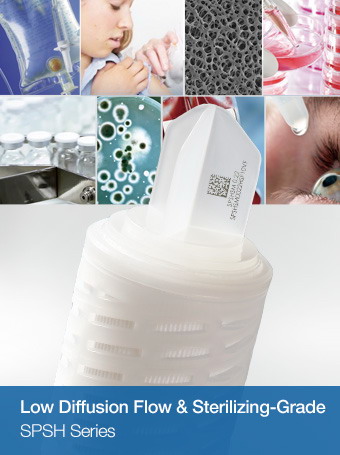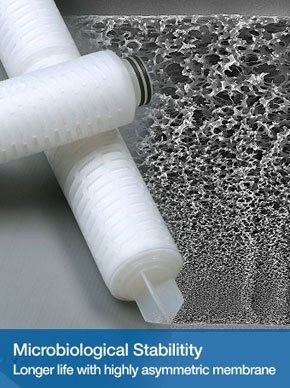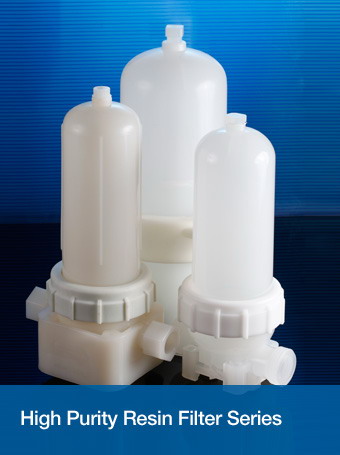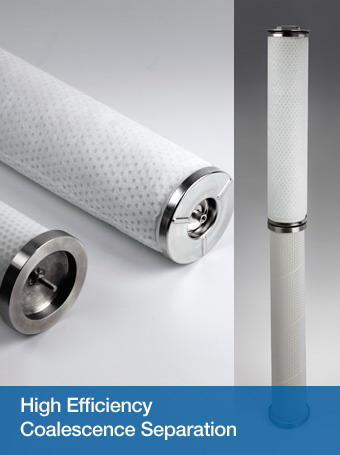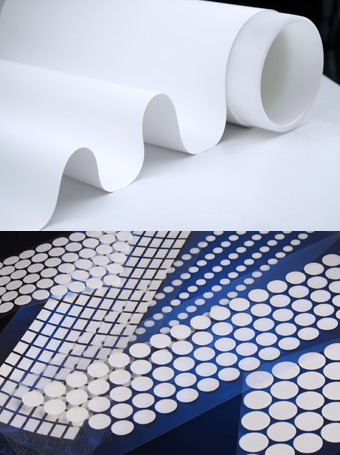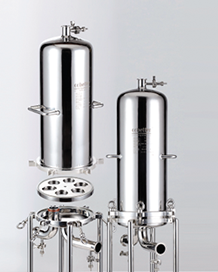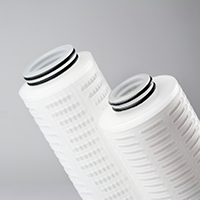Glass Microfiber Filters for Laboratory Filtration
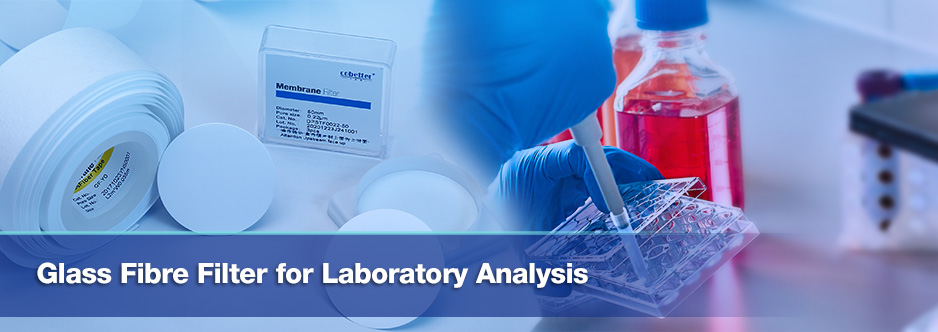
Cobetter as a leading supplier of laboratory consumables for many years and is committed to bringing it’s customers products that cost less, more accurate test results and less time to take.
Cobetter uses the finest natural materials to ensure consistent high quality, reproducibility and uniformity in every filter paper produced. Each filter paper is rigorously tested before leaving the factory in terms of weight, thickness, air flow rate and mechanical strength.
Glass fibre filter papers are widely used in Laboratory Filtration and Separation due to their broad filtration accuracy, fast flow rates, ultra low pressure drop, high load capacity, low extractables and broad chemical compatibility.
Applications
- Basic Analysis
- Food & Beverage
- Pharmaceutical Research
- Air Monitoring
| Glass Microfiber Filters Binder Free |
The membranes are made from 100% borosilicate glass fibre, the large surface area and deep structure provide excellent impurity retention and low filtration resistance. Glass fibre filter membranes can adsorb particles down to 0.7um in liquids and <1um in air and gases. Withstands temperatures up to 500°C.
Features and Benefits
- Retains fine particulate matter
- Erosion resistant
- Fast flow rate, high retention
- Binder free
Specifications
Grade | Nominal Rating
(µm) | Air speed
(s/100min) | Thickness
(µm) | Weight
(g/m²) | Water Flow Rate
(ml/min) | Applications |
GF/A | 1.6 | 4.3 | 260 | 53 | 143 |
Water and air pollution monitoring and wastewater filtration Food analysis Filtration of algae and bacterial cultures Protein filtration Weak beta emitter radioimmunoassay Determination of airborne particles by weight |
GF/B | 1 | 12 | 675 | 143 | 81 |
Liquid clarification Liquid scintillation |
GF/C | 1.2 | 6.7 | 260 | 53 | 105 |
Cell collection Liquid scintillation Binding assays |
GF/D | 2.7 | 2.4 | 675 | 121 | 681 |
Thick filter media for increased loading capacity Membrane prefilter |
GF/F | 0.7 | 19 | 420 | 75 | 41 |
DNA purification and binding Protein purification filtration Filtration of difficult to clarify biochemical solutions and liquids Waste leachate toxicity testing |
GF/H | 1.5 | 3.7 | 435 | 75 | 341 |
Cell collection Liquid scintillation Water and air pollution monitoring and wastewater filtration |
EPM 2000 | - | 5.6 | 450 | 85 | - | High-volume PM-10 sampling equipment |
For technical data sheet or application inquiry, you are more than welcome to contact our sales representative by sales@cobetterfilter.com or leave a message
| Glass Microfiber Filters with Binder |
The glass fibre membrane is made of 100% borosilicate glass fibre. The binder is added to enhance the mechanical strength of the glass fibre membrane and is mainly used to filter coarse particles (e.g. macromolecules, dust).
In order to avoid chemical reactions with the filtered material, glass fibre membranes with inorganic binders are used for the filtration of organic substances and glass fibre membranes with organic binders are used for the filtration of inorganic substances.
Features and Benefits
- High wet mechanical strength
- Erosion resistant
- Fast flow rate, high retention
- With binder
Specifications
Grade | Air speed
(s/100min) | Thickness
(µm) | Weight
(g/m²) | Applications |
GF6 | - | 350 | 80 |
Use as a beer filter in applications including protein removal Determination of chlorophyll and phytoplankton residue Determination of filterable substances and residue on ignition Analysis of aggressive media (e.g., acidic gases) Determination of iron content in the presence of iron oxides Liquid scintillation measurement |
GF8 | 12 | 350 | 80 |
Air pollution filters for PCB*, DDE, DDT, furans, and dioxin retention
for analysis Pollution measurements in industrial, urban, and populated areas Workplace dust measurements Measurement of dust fraction in technical gases Dust-collecting effectiveness testing |
GF9 | 27 | 350 | 70 |
Determination of PCB*, DDE, DDT, furans, and dioxins in air Pollution measurements in industrial, urban, and populated areas Dust measurements in the workplace Determination of dust fraction in technical gases Testing the effectiveness of dust-collecting |
GF10 | 12 | 350 | 70 |
Roll filter membranes in automatic air filtration units |
GF-F34 | 27 | 355 | 75 |
Measurement of crop protection agent using gas chromatography
(GC) or HPLC Separation and determination of cold sludge when brewing beer Soot separation prior to use of gas analyzers Roll filters for automatic air filtration units |
GF-F63 | - | 280 | 50 |
Suitable for PM1, PM2.5, PM10 and TSP sampling and beta-ray attenuation |
GF-F91 | - | 1350 | 220 | Meets the requirements of ISO standard 3308:2000 |
For technical data sheet or application inquiry, you are more than welcome to contact our sales representative by sales@cobetterfilter.com or leave a message
| Glass Microfiber with Surface Coating Treatment |
TCLP Testing Filters (Acid-treated with low metal content)
For a long time we have been using landfills to dispose of solid waste, but the solid waste leachate from landfills is continuously polluting the groundwater and soil, with the amount of waste and the accumulation of time, 3-5 years usually the waste leachate will pollute 1-2km of soil and groundwater in the landfill area, this process persists for 10-20 years, the pollution area will gradually expand.
We need to constantly monitor the spread of contaminants in the area around the solid waste landfill, continually assess the potential risks and recover and dispose of waste leachate in a sound manner. The TCLP approach is commonly used in the assessment of landfill solid waste contamination risks.
To dispose of hazardous waste in a United States municipal landfill, TCLP limits must fall within standard levels set for maximum contamination levels (MCLs).
Cobetter TCLP glass fibre membranes are made from 0.7 micron dense, non-binder glass fibre paper, which is acid-treated with low metal content to support TCLP testing by providing accurate information about TCLP limits to ensure the best possible disposal plan can be put into action.
Features and Benefits
- High wet mechanical strength
- Erosion resistant
- Fast flow rate, high retention
- With binder
Specifications
Nominal Thickness | 420 μm |
Nominal basis weight | 80 g/m² |
Typical Particle Retention in Liquid | 0.7 μm |
Format | Customized as your demand |
Gas-Absorption Filters (Copper acetate treatment)
In the detection process of gas sensor, the composition of the detected gas is often complex, and it is easy to create cross interference between different gases. For example, for gas sensor that is indicated to detect carbon monoxide, hydrogen could be also on the gas sensor if hydrogen’s concentration is high in the test environment. Then hydrogen may also react and get a signal that the concentration of carbon monoxide is higher than the actual volume.
In order to reduce the interference of some non-specific gases in air detection process, Cobetter glass fiber membrane with copper acetate treatment can absorb some interfering gases in the air, such as H2S, HMDS, etc.
Features and Benefits
- Rapid diffusion speed.
- High adsorption capacity.
- Efficient adsorption for interfering gases.
- Low chemical background, no adsorption on detected gas.
- Provide customization with a variety of specifications and treatment options.
For technical data sheet or application inquiry, you are more than welcome to contact our sales representative by sales@cobetterfilter.com or leave a message
| Glass Microfiber bonded with PTFE |
Pure borosilicate glass microfibers reinforced with woven glass cloth and bonded with PTFE. Both glass and PTFE display excellent chemical and thermal resistance properties and their combination permits the application in many of the most demanding filtration environments.
Features and Benefits
- High dimensional stability and high porosity - High temperature resistance - Greater creep and wear resistance - Broad chemical compatibility - Good electrical insulation properties - Low air resistance - Low moisture
| Applications
- Aerosol sampling tests - Diesel exhaust monitoring - Stack emission sampling tests - Ambient air monitoring for particulate concentration - Waste incinerator high temperature, high viscosity dust flue gas purification - Flue gas purification of the Iron and steel smelting blast furnace gas - Carbon black, coking furnace flue gas purification - Chemical industry, metallurgy, cement and other industries - Flue gas dry desulfurization of power plant coal fired boiler
|
For technical data sheet or application inquiry, you are more than welcome to contact our sales representative by sales@cobetterfilter.com or leave a message

